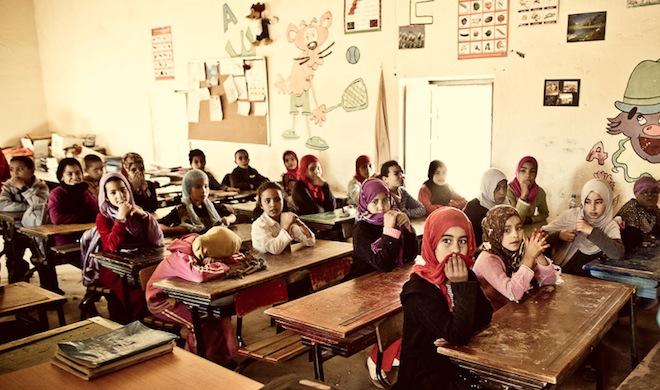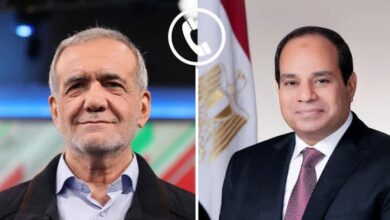
“Westerners are not geniuses and we are not stupid, they only support those who fail until they succeed, while we put hurdles in the way of those who succeed until they fail.”
The late Egyptian scientist Ahmed Zewail made this statement when describing a deteriorating Arab reality in which young people pay the greatest price. Zewail’s statement carries in it a deep cultural comparison between two mindsets that are different in thinking, planning, and implementation; one is innovative and constructive, and the other is discouraging and destructive.
The support that the West gives to those who “fail” is not merely a band-aid or a magical potion, as is the case with initiatives that we hear about sometimes in Arab countries. Rather, it is a strategic plan from which all members of society benefit, even those who have yet to be born!
The West prepares couples to raise their newborn children, providing them with proper education, professional supervision, and specialist support. The West considers its children to be “children of the state” first.
This support is present throughout childhood and continues into early adulthood, resulting in empowered individuals who are aware of their individual rights and duties towards society.
As for Arabs, a person’s “success” within the society’s conditions is like stone carving. An ambitious young man in Arab society faces an endless series of economic, social, and bureaucratic hardships. He is frustrated by his surroundings and the seemingly endless red tape he must cut through if he considers seeking support from a government office.
Thus, our youth suffer from feelings of despair, which leads them to shun reality and turn to fantasies. Once-held ambitions are reduced to mere projects that hinge on “leaving to the West”, which has become one of the most common dreams of the Arab youth.
Furthermore, these fantasies are accompanied by self-criticism and a loss of self-confidence, identity, and the relationship with one’s homeland.
This is especially apparent when a young Arab person witnesses the achievements of his peers who have moved away to and found success in societies of support and motivation.
When a country values the potential of its youth, it enables them to achieve high levels of success and unlock their full potential.
How long will we keep wasting the potential of the Arab youth?
I am not looking for the dark side of the problem at hand, and I realize that many Arab governments have begun to take new paths to support and activate the potential of their youth, especially those initiatives that target the youth of the whole Arab world, regardless of their nationality.
Such programs, unfortunately, still lack strategic and systematic planning, and are not widely available. However, they undoubtedly establish an important base for future initiatives.
Analyzing the problems of the Arab youth and getting to know them closely is the first step to investing in them. It will bring their dreams back to reality and positively impact local job markets and human development plans.
The Arab region possesses a huge wealth of talented and creative young people, who, if directed to the right path, can achieve excellence in various fields of life.
Age of revolutions
We live in an age of three revolutions: the communications revolution, the space revolution, and the biological revolution. Advancement is moving at an accelerating pace, and will not hesitate to leave behind those who cannot catch up.
Perhaps this time is best described by the American thinker and futurist Alvin Toffler saying: “power in the twenty-first century will not be measured by economic or military standards, but rather in knowledge.”
Before, knowledge was just an addition to the power of money and influence. It has become today the true essence of power.
Many major companies and institutions were pushed out of the race when they failed to acquire knowledge. Nokia, for example, dominated the global mobile phone market from 1997, and had a 50 percent market share until 2008. However, it gradually began to collapse and fail against other companies and systems, such as iPhone and Android, because these new companies were able to surpass Nokia in acquiring modern technological knowledge. Thus, Nokia’s failure to keep up with the world’s ever-growing knowledge was the final blow that took it out of the market.
The fact is, knowledge has no limits. In today’s world, the youth are the pioneers of technological innovation, with their fertile imaginations that are capable of evolving and developing, provided that they are given the opportunity to do so.
Silicon Valley in California can serve as an example of a place that knew how to unlock the potentials of some of the brightest young minds in the world. The companies there made use of their young employee’s creative ideas in technology. The valley quickly became a knowledge plant that transforms ideas into facts and investments .. and microchips as well.
Challenges and solutions
Perhaps the most significant challenges facing addressing this issue lie in the administrative mentality and its bureaucratic mechanisms that controls education and pedagogy in our Arab countries.
Education needs to be restructured with radical solutions, through a comprehensive renewal of its curricula.
This process begins with defining what this renewal is, that is, the renewal of educational discourse in school curricula, which is still didactic by nature, negatively affecting the minds of the youth.
The secret to this lies in doing away with close-mindedness, and rather turning toward curiosity and exploration to help provide students with the optimal conditions for acquiring scientific knowledge.
We need such a renewal to equip our youth with the tools to analyze the causal correlation that helps explain natural phenomena, understand the relationship of the part to the whole, formulate hypotheses, analyze causes, and then discover law.
We are in dire need of many modern curricula, through which our youth can acquire the skill of asking the question and looking for the answer. After all, Aristotle did say that questions and wonderment are the basis of knowledge.
We should not forget that open educational curricula that adopt “doubt” as an effective tool of knowledge, takes us from “accusation of disloyalty” to “thinking”.
This new system calls for the liberation of the educational institutions, freeing them from ideological framework that based on rigid slogans and glorification a country’s rulers, replacing them with a culture of free thought and openness to the other.
Such an overhaul would lead to cultivating a creative mindset and activating cognitive potentials, rather than continuing in the mire of closed-mindedness and dullness. Our societies would no longer remain hostage of religious and political mongers.
A culture of knowledge, creativity, and progress would blossom. We would move away from a culture of hostility, takfir, sectarian division, doctrines and creeds, and ideological and intellectual stagnation.
Our societies have grown tired of their suffering. The time for change has come.
The youth is our key to change. It is with them we can close the gap and catch up with the rest of human civilization with an open mind.
Renewing educational discourse has become an urgent need to keep pace with the world.
Our Arab societies need to stop pushing their youth into a world of despair and extremism, further wasting their potential.
It is unwise to keep this potential locked in backward mentalities and infertile thought. Rather, it should be employed and directed so that history does not hold us accountable for wasting it.
This is a call to the reasonable people and the decision-makers to help young men and women, provide them with support, and extend bridges to the future for them. Otherwise, the cost will be greater than we can imagine.




